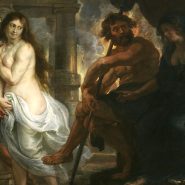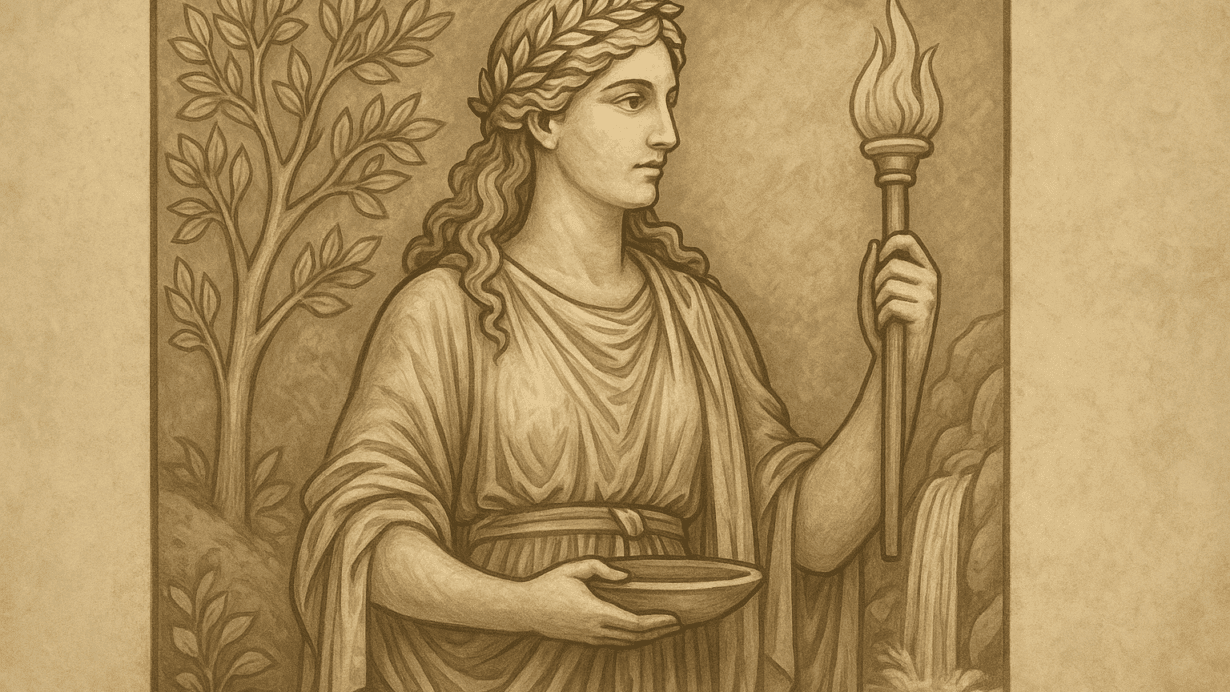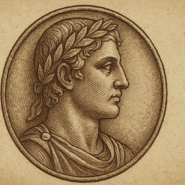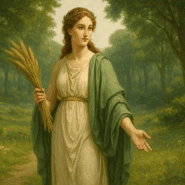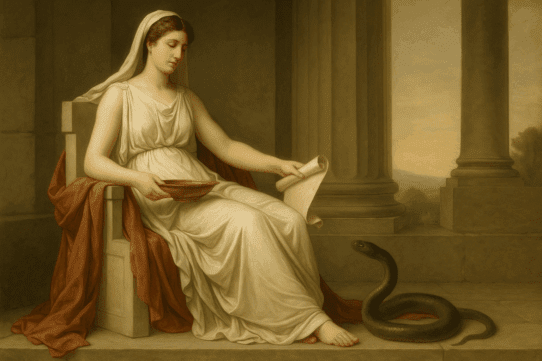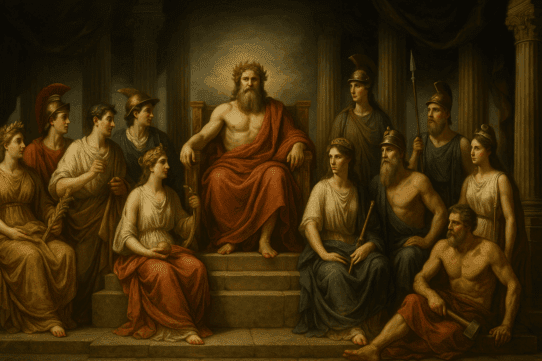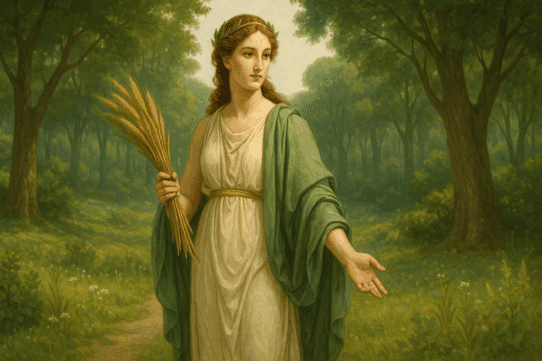Feronia is one of Rome’s most enigmatic goddesses, a divine presence who stood outside the structures of power, wealth, and order.
She was a protector of freedom, a healer, and a guardian of the wild. Her shrines stood at the boundaries of civilization — where forests thickened, where mountains rose, and where Rome touched the rugged lands beyond its reach.
To understand Feronia is to step into a world where nature is both sanctuary and strength.
Origins and Character
Feronia’s origins are ancient, predating much of the classical Roman pantheon. She was revered especially in central Italy among the Sabines and Etruscans before being fully adopted into Roman religion. This deep antiquity explains the sense of mystery surrounding her.
Unlike many Roman deities tied to political institutions or state rituals, Feronia was a goddess of liminal spaces — the edges, the wilds, and the untamed.
Her name may connect to ferus, meaning “wild,” a fitting root for a goddess who embodied natural freedom and raw vitality.
Goddess of the Wilderness
Feronia ruled over forests, mountains, springs, and places where cultivated land gave way to nature. People came to her shrines not for grand ceremonies but for personal renewal—seeking grounding in places where the boundaries between mortal and divine seemed blurred.
Her sanctuaries were always outdoors and often set in groves or near sacred springs. The wild was not dangerous to her followers; it was a place of clarity and protection.
Freedom and Release
One of Feronia’s most important roles was as a goddess of liberation. She presided over the freeing of slaves, who could begin new lives under her protection. At her shrine in Terracina, newly freed individuals left offerings to honor the goddess who oversaw their transition into freedom.
This association with release extended beyond legal liberation. Feronia was invoked by people seeking release from fear, illness, confinement, or emotional burdens. She represented the ability to shed what binds and reclaim personal strength.
A Goddess of Healing and Vitality
Feronia was also known for her healing touch. Her shrines were associated with natural springs and purifying rituals. People came to her for:
- restoration after illness
- protection from harm
- renewed vitality
- blessings for safe travel through wild or unknown lands
In this way, she acted as a guardian for those living on the margins of society — travelers, freedpeople, rural farmers, and anyone seeking refuge away from the city’s rigid structures.
Festivals and Worship
Feronia’s most well-known festival, the Feroniae, took place at her major sanctuaries in Terracina and near Mount Soracte. These festivals blended market gathering, offerings, and communal celebration. People brought homemade goods, produce, and symbolic gifts representing what they hoped to release from their lives.
Her priestesses sometimes performed rites connected to fire — walking near or over flames as a demonstration of divine protection and renewal. Such rituals emphasized Feronia’s nature as a goddess who empowered through courage and inner strength.
Myths and Ancient Testimony
Feronia does not appear prominently in surviving Roman myths, but ancient writers still recognized her power. Virgil mentions her in the Aeneid, associating her with the courageous warriors of Italy. Her shrine at Terracina is referenced repeatedly in ancient sources as a place of healing, freedom, and sacred wildness.
Even without elaborate mythology, Feronia’s presence was felt through lived ritual and personal devotion rather than grand narratives.
Meaning and Legacy
Feronia’s enduring appeal lies in what she represents: the ability to reclaim oneself. She speaks to the part of Roman life that existed outside law courts, military camps, and city walls. Her sanctuaries offered respite for the exhausted, strength for the vulnerable, and renewal for the lost.
In the modern understanding of Roman religion, Feronia stands as a reminder that ancient worship was not only about power and politics. It also embraced healing, nature, personal transformation, and freedom — values embodied in Feronia’s timeless presence.

